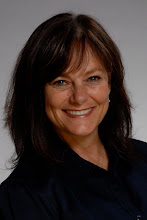By Erica Gies, March 19, 2008 New York Times
Bottled water sales in the United States reached 8.82 billion gallons in 2007, worth $11.7 billion, making the U.S. market for bottled water the largest in the world, according to Beverage Marketing, a provider of beverage industry data.Worldwide, water bottlers sold 47 billion gallons, or 178 billion liters, in 2006, up from 43 billion gallons in 2005. Campaigners against bottled water cite concerns that include energy consumption and greenhouse gas emissions, waste, the environmental effect of water extraction, the perils of privatization and social issues. "We're at the beginning of an awakening of the costs of our bottled water use," said Peter Gleick, president of the Pacific Institute, a sustainable development research organization in Oakland, California. In the United States, city, state, and county governments have legislated to limit bottled water use or promoting tap water. Restaurants, schools, and religious groups have adopted similar policies, according to the Earth Policy Institute, in Washington.
The energy required to make water bottles in the United States is equivalent to 17 million barrels of oil annually, Gleick said. Globally, the bottling industry uses the equivalent of nearly 100 million barrels of oil each year, excluding transportation. Gleick said the Fiji brand of bottled water sold in Los Angeles traveled about 2,000 miles, or more than 3,000 kilometers, from the source to the store, effectively doubling its use of energy. “Making plastic water bottles causes greenhouse gas emissions and uses water - about three
liters of water to produce one liter of bottled water”, Gleick said. In the United States, less than 20 percent of water bottles are recycled, according to the Container Recycling Institute.
Jane Lazgin, spokeswoman for Nestlé Waters North America, said Nestlé was an industry leader in reducing the plastic in bottles. In April 2007, it introduced a bottle that used 30 % less plastic than regular bottles. The company planned to move all of its products to the new bottle, she said. Bottled water is often 1,000 times more expensive than tap water, and the industry subtly undercuts public faith in municipal supplies, Kellett said.
"Coke and Nestlé and Pepsi have spent tens of millions of dollars a year manufacturing a demand for water as a commodity to be bought and sold for profit”, she added. In 2006, the industry spent $162.8 million on advertising bottled water in the United States, according to ZenithOptimedia. Lazgin defended the industry, saying its growth represented a shift from soda to water, not from the tap to bottled water. "The reality is 70 percent of what we drink in America comes in a can or a bottle," she said.


.bmp)


No comments:
Post a Comment